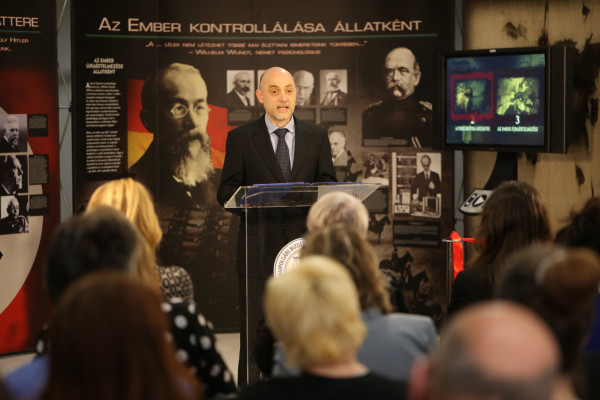Press release. In Budapest, the Citizens’ Commission for Human Rights (CCHR) organized a demonstration at the congress of the European Psychiatric Association, criticizing harmful psychiatric practices. The event included a march and exhibition highlighting the need for substantial reforms in the mental health sector, as called for by the United Nations and the World Health Organization.
A demonstration took place in Budapest to challenge practices in the field of psychiatry during the congress of the European Psychiatric Association. The Citizens’ Commission on Human Rights (CCHR) organized this event to shed light on what it considers to be abusive or harmful methods in psychiatry. The event included a march and exhibition aimed at drawing attention to issues surrounding the mental health sector and advocating for meaningful reforms.

The EPA congress, held in April 2024, was criticized for failing to take action in response to recent directives from international bodies such as the UN and the World Health Organization. These guidelines called for an end to abusive psychiatric approaches, a topic that critics said was not adequately addressed by the EPA’s theme “Mental Health: Open and Inclusive.”
Led by CCDH In Hungary, the protest began with a march through downtown Budapest that ended at the Budapest Exhibition and Congress Palace, where the EPA congress was being held. The march remained peaceful but impactful, highlighting demonstrators’ calls for reforms in practices.
After the march, CCDH Hungary presented an exhibition entitled “Psychiatry; An industry of death. This exhibition, presented in cities across the United States and Europe, uses recordings, videos and other types of evidence gathered over a period of more than five decades to examine the field of psychiatry. The exhibition reveals the impact of psychiatric methods, including controversial treatments like brain surgery and “electroshock therapy”, and how they have influenced various aspects of society, including prominent artists and historical events.
At the unveiling of the exhibition, János Dobos, head of CCDH Hungary, spoke fervently. “These documents highlight the impact of psychiatry and the often harmful effects it has on individuals and society as a whole,” Dobos said. “It is essential for us to question these practices and advocate for therapeutic alternatives. »
Known for its intense content, the exhibition warns visitors about its nature and only allows entry to those over the age of 16, unless accompanied by an adult. Its goal is to inform the public about current events and challenges in psychiatry while promoting a re-evaluation of how mental health issues are approached and treated.

CCHR, the mental health watchdog organization founded in 1969 by psychiatrist Thomas Szasz in collaboration with the Church of Scientology, has consistently garnered attention and support for its critical but accurate perspective on psychiatry and its methods.
The recent incidents in Budapest have sparked a discussion about psychiatry’s involvement in contemporary health care and the moral consequences of its methods. As discussions progress, CCHR aims to continue to support what it sees as changes aimed at safeguarding the rights of individuals and improving mental health services globally.
Members of the Church of Scientology, the religion founded by L. Ron Hubbard, are dedicated to promoting rights, particularly in the area of mental health. Drawing on Mr. Hubbard’s teachings, they advocate for safeguarding and recognizing the health care rights of all individuals, emphasizing the importance of holistic approaches to mental health care. This commitment is part of a goal to make human rights a tangible reality in all aspects of life, including in the area of mental health.
Originally published in The European Times.
source link eu news














